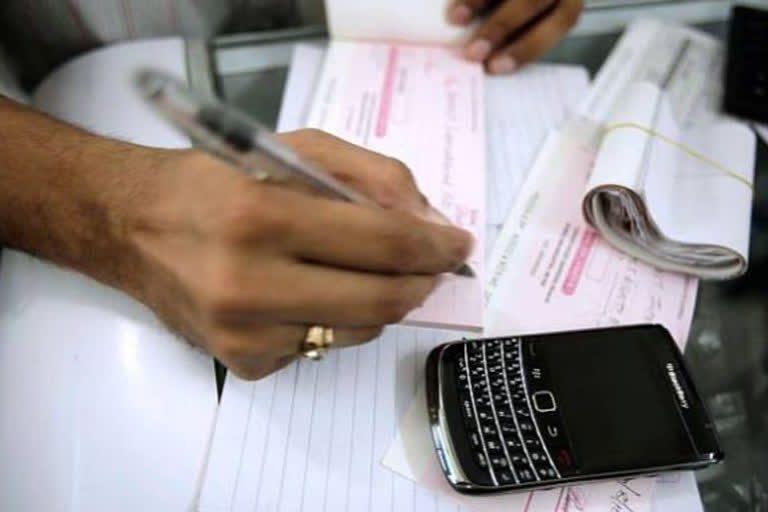Hyderabad: Cheques have always been an integral part of the Indian financial ecosystem, even in this age of digital payments. Post-dated cheques (PDCs), in fact, still remain critical for various business transactions like rent payments, loan payments, real estate deals etc. That’s why when the central government in June 2020 proposed ‘decriminalizing’ several offences under financial sector laws, including the bouncing of cheques, there was a sudden pandemonium.
Decriminalising meant that dishonouring of cheque payments might be treated as a civil offence and will attract a monetary penalty rather than the current practice of it being treated as a criminal case with jail term punishment.
The Department of Financial Services last month issued a statement seeking comments from stakeholders on the same. Since then, there has been intense debate among industries, traders, lawyers, bankers and consumers on adoption of the move. Here’s a detailed look at what the fuss is all about.
What is the current law?
In India, under the Section 138 of the Negotiable Instruments Act, 1881, a person issuing a cheque will be committing a criminal offence if the cheque bounces due to insufficiency of funds. The offence is punishable with imprisonment for a term up to two years, or with a fine twice the amount of the cheque, or both.
When a cheque bounces, a legal notice is issued to the drawer (person writing the cheque) within 15 days of the payee (person receiving the cheque) receiving information from the bank regarding the return of the cheque as ‘unpaid’. The drawer is then given time of another 15 days to make the payment. If the payment is made, the issue is settled. On the contrary, if the payment is not made, the payee is to file a criminal case against the drawer under Section 138 of the Negotiable Instruments Act within 30 days from the date of expiry of the 15-day payment window.
Why is the government tweaking the law?
The government essentially aims to improve the ease of doing business in India with this move. In its statement of reasons, the Department of Financial Services said: “Criminalising procedural lapses and minor non-compliances increases burden on businesses and it is essential that one should re-look at provisions which are merely procedural in nature and do not impact national security or public interest at large.”
Read more:Banking sector woes impacting growth: CEA
“The risk of imprisonment for actions or omissions that aren’t necessarily fraudulent or the outcome of malafide intent is a big hurdle in attracting investments. The ensuing uncertainty in legal processes and the time taken for resolution in the courts hurts the ease of doing business,” the statement added.
Also, such offences travel a long legal journey, choking up the various tiers of the judicial system with little financial gains, the government noted.
Who are against it and why?
Businesses see bouncing of a cheque as a case of ‘cheating’ or a ‘false promise’ that can jeopardize their working capital situation and, hence, are widely criticising the recent government proposal.
The Confederation of All India Traders (CAIT) has urged the government not to decriminalise Section 138 under any circumstances, saying such a move would nullify the sanctity of cheques in India.
According to CAIT, the proposed decriminalisation, if implemented, will put crores of businessmen under severe risk of losing money to immoral and fraudulent elements of society. “Not only the traders, but others will also find it difficult to purchase any goods on EMI since EMI is always supported by post-dated cheques. Henceforth, no one will accept post-dated cheques,” it said.
The All India Bank Employees’ Association also said: “If deliberate cheating of the banks by the borrowers is not dealt with sternly, not only bad loans in banks will multiply further, but also the open loot of public savings will continue.”
The union also suggested fixing of financial limits for attracting criminal provisions relating to bouncing of cheques. “For individuals, if the returned cheque amount is Rs 1 lakh or more... and for companies, if the returned cheque is Rs 10 lakh or more, then only it should be tried under criminal procedure code,” said AIBEA.
(ETV Bharat Report)



